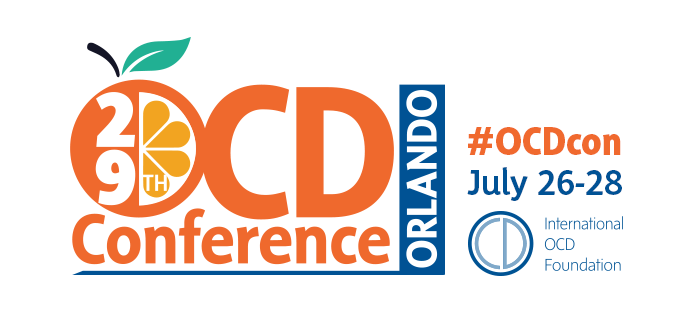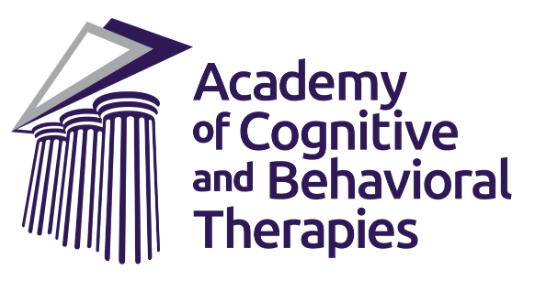
In computer terms, Evan* had “crashed.” His eyes have a certain look that loved ones know all too well in his dark moments. If you don’t have OCD, maybe you have experienced a sampling of this feeling when an urgent decision about something important comes up and you don’t know which option to choose. Add several days or weeks to that feeling, and multiply it by 100. In my opinion, that describes the pit OCD sufferers often find themselves in.
At this moment, he was obsessing over whether his intrusive, violent thoughts meant he was crazy or needed to check in to a hospital before he “snapped.” I was confident after assessment and their history that this was unnecessary. It was OCD, and he wasn’t at risk. That’s the reality of so many who suffer from this illness–if only they could borrow the confidence of almost everyone around them. They cannot force themselves to feel differently in these moments.
You Don’t Get To Know The Same Way People Without OCD Do
Another client taught me the phrase: “You don’t get to know.” What a brilliant way to put it. Every human being lives with incalculable uncertainty every day. I don’t get to know how investing money will go. It’s not possible to know with certainty where I will be ten years from now. My closest friend may be a faint memory. Maybe I’ll be a car salesman instead of a clinician and writer. These things don’t bother me because they have no threat to me at the moment. What does bother me are the things that concern me today: “Am I doing enough?” “Am I raising my children well and setting a good example?” “Will my business survive?” “What is the economy doing?” “The world seems more hostile; what does that mean?”
Evan was deeply stuck because his concern felt real and highly distressing to him. He had already been introspecting for days when he came into my office.
I gently said, “You don’t get to know.”
Evan didn’t say a thing but broke his ruminative gaze from the floor. His eyes cleared like clouds after a storm. He waited for me to clarify.
I continued, “You don’t get to know. What is the uncertainty you are not accepting? What fear are you not facing?”
Jolted from his stupor, he intelligently labeled his core fear he had prior identified [see “Flip the Script- A Guide to Imaginal Exposure“]:
“If I miss something, those I love could be in danger. I’d rather be locked up than hurt them. If I need to be hospitalized, that’s the safest for everyone. I can sacrifice my comfort to ensure this doesn’t happen.”
“So your exposure script is, ‘What if I’m missing something and I harm those I love, and I could’ve done something to prevent it.’?”
“Yes,” he said, verbalizing the script with my prompting several times.
He started facing his fear by sitting with the uncertainty he felt. Instead of using compulsions, he stayed present with his feelings and thoughts, and practiced acceptance that the moment existed the way it did. His confidence started to increase as he “scripted,” and his distress continued to drop by the end of the session. By the next day, he felt like a new man. Yet, he had to keep practicing his imaginal exposure scripts. He also returned to his situational exposures, which were to spend more time with the family, hug them, use knives in the kitchen, and to watch tv or movies he would otherwise watch instead of avoiding a show that features some violence.
How Do You Know? (Prepare to Go DEEP)
Most people don’t have to think much about how they know something. An entire branch of philosophy is dedicated to studying how we know what we know: epistemology. If you don’t care, let me save you time, and you can skip to the next section: defining knowledge and how someone comes to “know” something is quite complex. Philosophically speaking, there is much controversy. Let me give you a practical example.
- John says he just “knows” his March Madness bracket (predictions) will win his friends’ tournament.
- Nina “knows” her home is in the order she left it.
- Bruce “knows” his wife loves him “til death do us part.”
- Sidney “knows” what she will eat for dinner tonight.
Is that knowledge complete? Is it confidence? What if these things turn out differently? Check out a summary of epistemology from Stanford (2023) here:
Cognitive successes can differ from each other by virtue of qualifying different kinds of things. For instance, a cognitive success—like that of making a discovery—may be the success of a person (e.g., Marie Curie), or of a laboratory (Los Alamos), or of a people (the Hopi), or even, perhaps, of a psychological fragment of a person (the unconscious). But some kinds of cognitive success—like that of having successfully cultivated a highly discriminating palate, say—may be the success of a person, and perhaps even of a people, but cannot be the success of a laboratory or of a psychological fragment. And other kinds of cognitive success—like that of being conclusively established by all the available evidence—may be the success of a theory, but cannot be the success of a person—or like that of being epistemically fruitful—may be the success of a research program, or of a particular proof-strategy, but not of a theory. Indeed, there is a vast range of things, spanning different metaphysical categories, that can enjoy one or another kind of cognitive success: we can evaluate the cognitive success of a mental state (such as that of believing a particular proposition) or of an act (such as that of drawing a particular conclusion), or of a procedure (such as a particular procedure for revising degrees of confidence in response to evidence, or a particular procedure for acquiring new evidence), or of a relation (such as the mathematical relation between an agent’s credence function in one evidential state and her credence function in another evidential state, or the relation of trust between one person and another).
I’m not attempting to make you feel uncertain. The whole point here is to introduce the reality that how we know is often challenging to define and taken for granted. When someone has OCD, PTSD, or an Anxiety Disorder, their brain malfunctions around uncertainty. The things the rest of the world takes for granted (called “automation” in neuroscience) rise to the surface and become predominant, constantly thinking things like:
- Will I be safe?
- I don’t feel good; surely something must be wrong.
- What if I’m missing something?
- I feel like something terrible is going to happen.
- I just have this feeling.
- There’s something really real. This time it’s real.
Acknowledging the errors in thinking and processing helps build the strongest recovery. Spending too much time excavating uncertainty leads to incredible impairment. Just ask the hundreds of people I’ve worked with and the over two Billion people who will have a disorder that affects this at some point in their lives!
Uncertainty: The Hallmark of OCD and Anxiety Disorders
It is commonly stated in my expert circles that the hallmark of OCD and Anxiety is uncertainty. How a person responds to uncertainty when distressed is the core feature. For example (uncertainty in italics):
- Social Anxiety: “Maybe they’re judging me and thinking negatively.” –> Avoidance
- OCD: “I felt angry when I was cutting vegetables and my wife walked past. Did I want to hurt her?” –> Mental Checking
- Generalized Anxiety Disorder: “If I take this new job, maybe I can advance as I’ve hoped, but it’s so uncertain because what if it’s not better?” –> Worry rumination
- PTSD: “I have flashbacks whenever someone talks about violence; I can’t stand to think of it and need to leave.” –> Avoidance
- Phobia: “Spiders/needles/elevators/planes must be avoided at all costs; I can’t handle them.” –> Checking / Avoidance
- Panic and Agoraphobia: “I start to panic when I’m stuck in traffic and am afraid I’ll lose control.” –> Avoidance, Checking
The best two books I know on this topic are:
- Freedom from Obsessive Compulsive Disorder by Jonathan Grayson (especially Chapter 1)
- Stopping the Noise in Your Head by Reid Wilson
Acknowledge Your Limits—Self as Context
Acceptance and Commitment Therapy (ACT) provides a powerful framework to practice what I like to call plain old humility: we are all biased. Hear me clearly: it doesn’t mean we are all wrong about everything or that truth is unknowable. It simply means that we perceive the world through our own two eyes, ears, brain, and experience. Another person, even very similar, may see differently. Different isn’t necessarily wrong. If you hold to any morals, we acknowledge that there are right and wrong ways of looking at things. Here’s a snippet of how ACT is utilized in therapy for those suffering:
Who are you? Acceptance and Commitment Therapy (ACT) draws a distinction between two senses of self – self as content and self as context. Self as content, or our conceptualized self, refers to who we ordinarily think we are. Our self concept includes all the identities we take on, such as friend, student, son or daughter, and spouse. It also includes our self evaluations, such as “smart” or “dumb”, “friendly” or “mean,” “useless” or “productive.” Whenever we hold our identities too tightly, we cause difficulties for ourselves. However, contact with the other sense of self, self as context, or the observing self, helps to free us from the labels we and others place upon us. Even though our experiences are constantly changing, there is always a “you” that is able to notice these changes. When we are able to contact that sense of “pure awareness,” we are able to observe our experiences without getting caught up in the content. We are freed from the evaluations, beliefs, ideas, and judgments that we place on ourselves. (Portland Psychotherapy, 2023).
Back to Evan—he was getting hooked on the content of his obsessional anxiety. We utilized tools to help him slow down his judgments which jumped back and forth between opposing options every few minutes. Only then could he look the uncertainty square in the eyes and sit with it.
He finally accepted, “I don’t get to know.” Then he moved on with placing his focus and actions on what he did believe and wished to act upon. After this hallmark shift in his conceptual understanding of uncertainty, his struggles didn’t go away overnight, but instead of taking years more of therapy (like he had done in the past), he wrapped up with me in only twelve more sessions and has a new relationship with uncertainty to this day.
Compassion and Love Go a Long Way for Those Who Struggle
The person with OCD or an Anxiety cannot “just let it go.” The feelings, sensations, and deep sense that “something’s off” are unavoidable. This is why it is uninformed at best and cruel at worst to tell someone experiencing this to “just get over it.”
*The story above is a composite of several common experiences, which allows me to obscure detail to maintain anonymity, confidentiality, and privacy. Rest assured, the examples are authentic and come up often.
I am well aware in the world we live in, Evan’s story can be distressing to hear and even bring up trauma for those who have direct, actual concerns of violence. If you are a person who doesn’t understand OCD or Anxiety Disorders, it might seem like Evan could really be a threat. He was not. The key distinction for Evan is that he was assessed as having OCD and his thoughts were intrusive, egodystonic (against his wishes). I deemed him safer than a person who didn’t have these thoughts because of how contrary they were to his character.









Leave a Reply